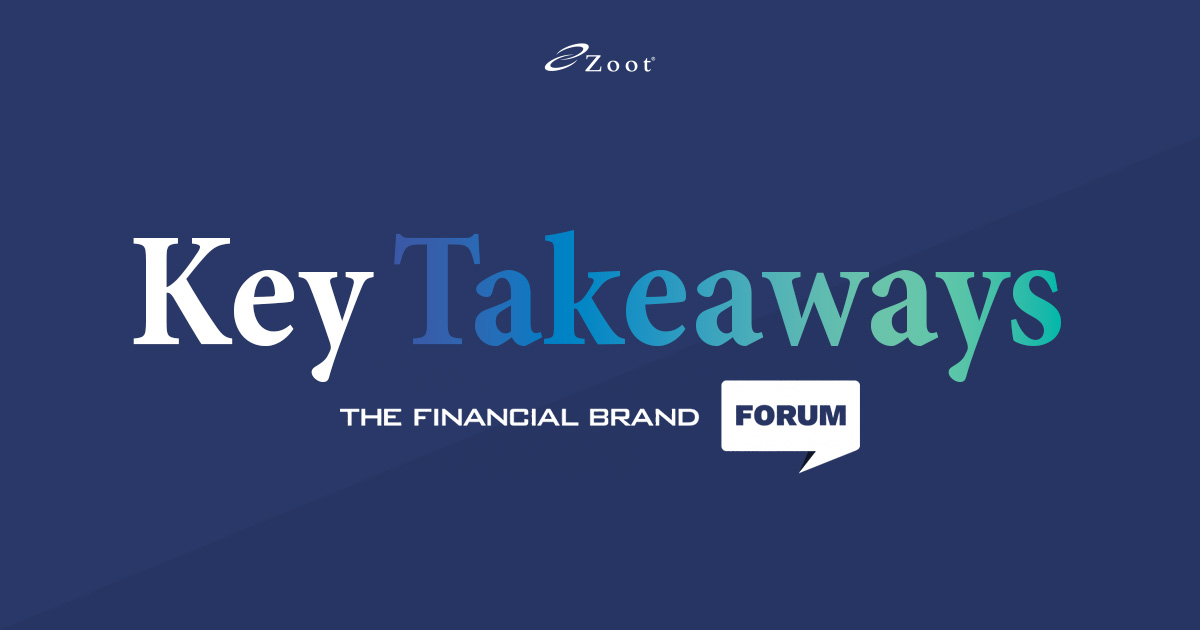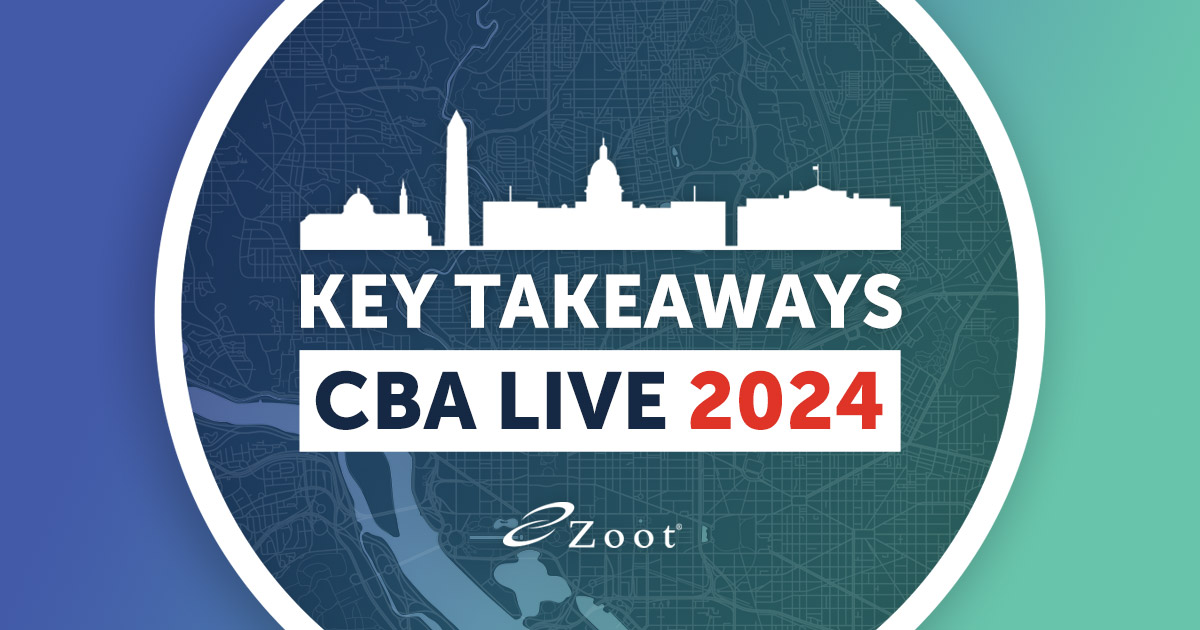At the end of October, thousands of fintech experts descended upon Las Vegas for the world’s biggest and most influential gathering of banks, financial services companies, and more. After three days of insightful presentations, networking opportunities, and forums, here is the Zoot recap of the most important takeaways from this year’s event:
Table of Contents
Fraud Remains Top of Mind for FIs at Money20/20 2024
Fraud remains top of mind for FIs and attendees of all kinds at Money20/20 , touching every corner of the industry from major banks to credit unions and fintechs.
Fraudsters continue to follow closely behind the uptick in digital transactions and services, using increasingly sophisticated technology to create and exploit vulnerabilities. From AI-generated deep fakes to synthetic identities and malware that adapts in real time, fraudsters are leveraging the latest innovations to bypass traditional security measures. For FIs, fraud is no longer limited to isolated incidents; it’s an ever-present risk that challenges operations and consumer trust on a daily basis.
This shift has caused fraud prevention to become more than a typical cost of doing business. Fraud prevention has effectively become a central component of any FI’s reputation management strategy. Customers have been forced to become hyper-aware of data security issues in recent years, and have come to expect strong defenses and swift responses to potential threats. Institutions that take proactive steps in fraud prevention are seen as trustworthy leaders in safeguarding their customers.
By investing in advanced fraud prevention measures and continuously evolving their strategies, FIs differentiate themselves, build confidence, and reduce the long-term reputational damage that a high-profile fraud incident causes.
Open Banking Draws Near in the US
The CFPB’s proposed open banking regulations under Section 1033 of the Dodd-Frank Act represent a significant shift in financial data accessibility and transparency. For FIs, Section 1033 opens the door to greater value-added services and was a hot topic for discussion at Money20/20 2024.
One study showed that 71% of consumers would consent to sharing their banking data if there is something in it for them, such as a better rate or better-fit product. By enabling and incentivizing consumers to share their data with trusted third-party applications, FIs can leverage this information to offer a broader range of financial products that are well-matched with each individual consumer.
Cash flow underwriting, in particular, will allow FIs to gain insight into customers’ spending patterns and real-time income data, providing a more comprehensive view of an individual’s financial health. This opens the door to underserved customers, moving beyond traditional credit scores and enabling wider access to credit products by providing up to a 30% increase in loan approval rates, making events like Money20/20 2024 crucial to stay informed.
This shift not only enhances customer choice, but also fosters competition as data is becomes more widely available. FIs will be under increasing pressure to innovate and deliver exceptional value in the open banking landscape; it is critical that Section 1033 is viewed not only as a compliance issue, but an opportunity to deliver strong, high-quality offers and experiences to customers.
The Impact of AI/ML in Finance
The increasing attractiveness of artificial intelligence and machine learning continues to transform the marketplace for FIs of all sizes, enabling them to better understand, predict, and respond to customer needs.
By leveraging AI-driven insights, FIs can better anticipate customer behaviors and preferences, enabling them to tailor offerings, personalize engagement, and deliver consistent value at each step of the customer journey. The accuracy and effectiveness of AI-driven processes, however, hinges upon high-quality data. Increasing amounts of data will be consumed in AI/ML processes, providing insights that will become key differentiators in delivering hyper-personalized customer experiences. AI/ML also continues to offer efficiency gains through automation and streamlined processes, even aiding in predicting fraud in real-time.
By embedding AI/ML within their processes, FIs create faster, frictionless experiences that help build trust and loyalty, reshaping the expectations that customers have for financial services and empowering the FI with a competitive edge. But, FIs must move fast to keep pace with the competition – every day counts when implementing AI to support growth.
The Future Outlook for FIs
Looking ahead, FIs face a pivotal opportunity to reshape their processes in order to thrive, with events like Money20/20 2024 providing a platform to navigate these changes. Regulatory changes, rising fraud threats, and the rapid adoption of AI are all placing new demands on the industry, especially when it comes to operating efficiently and cohesively.
Many FIs are hindered by fragmented legacy tech stacks that struggle to adapt to support these changes at scale. Unifying disparate technologies is no longer just an operational goal – it can make or break any strategy for growth or increased customer satisfaction.
Bringing together fragmented technology not only supports streamlined fraud prevention and an enhanced customer experience, it also significantly enhances agility. Those who make the leap toward integration will gain a significant edge as changes in the market come about, unlocking the full potential of their existing systems and transforming insights from events like Money20/20 2024 into actionable strategies.
Unifying Fragmented Tech for Best Outcomes
Whether you’re a bank, payments facilitator, retailer, or another FI, Zoot’s solutions harmonize diverse systems, bridging the gaps between legacy infrastructure and modern solutions to transform the broken pieces into a cohesive, resilient whole that empowers smarter, faster decision making.
When a top 10 FI was looking to enable cross sell across lines of business, they kept running into barriers due to fragmented systems. Zoot unified their tech stack for a true enterprise platform, using shared libraries and line-of-business-specific logic to power cross selling opportunities across their organization. They are now able to deliver the right offers to the right people at the right time, and have experienced substantial growth in wallet share and deepened customer relationships as a result.





